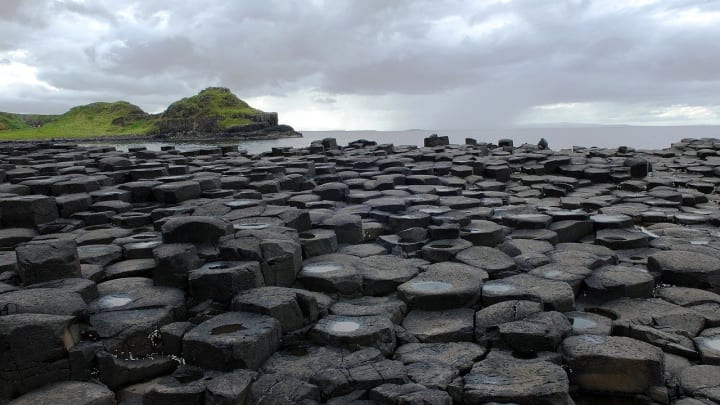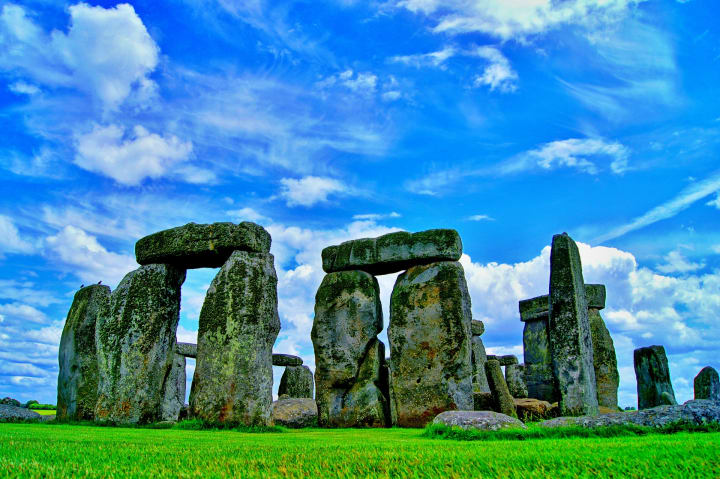British English is a Minority Dialect in the UK
Why is a dialect spoken by just 2% of the UK population considered to be standard British English?

Most people outside the UK seem to think that so-called British English is what we speak in the British Isles. It's not even close; it's a minor dialect spoken by just 1.3M people out of 65M.
It is, however, adored by those bloggers who love to compare US English and 'British English'.
So why does a minor dialect from a small region of the UK get so much attention?
What is so-called British English?
What is commonly called British English around the world, is known in the UK as the Received Pronunciation or RP dialect. Another common term is BBC English as their journalists use RP.
RP is the accent and dialect spoken by the professional, middle and upper classes from London and the south-east of England.
It's no coincidence that these RP speakers are the presenters and actors in the BBC and in films and other TV programmes. They are also those who write English textbooks, they are the well-known British authors and of course, our politicians. The British Council's headquarters is in central London and the two principal UK universities, Oxford and Cambridge, are only 60 miles from the capital.
If you want to know RP English, listen to Boris Johnson and David Cameron, the present and former Prime Ministers, Hugh Grant and Emma Watson the actors and, of course, the British Royal Family.
So that's how the posh, famous and wealthy people speak in the UK. What about the rest of us?
The real British English
There is no single version of British English. There are at least thirty to forty different English dialects across the British Isles, each with a distinctive accent, pronunciation, grammar and vocabulary.
Often these dialects are divided by class, even within the same region. For example, the Cockney and Estuary dialects of east London and southern England are working-class dialects spoken in exactly the same region as RP English.
All these dialects are British English, but they are not the same as so-called 'standard' British English. Most are more widely spoken than RP.
Let's look at some of these other British English dialects.
Scots English

There at least four distinct dialects in Scotland: Insular, Northern, Central and Southern. There are even sub-dialects of these dialects: Borders, Braid, Doric and others.
For the sake of brevity, we can group the Scots dialects into one umbrella dialect we'll call Scots English.
Pronunciation is a significant difference from RP English. For example, the rolled letter r is much like the pronunciation of r in Spanish. Words like brown are pronounced broon, wrong is wrang, to sounds like tae and ball is baw. Words tend to flow into one another, did not becomes didnae.
Some linguists argue that Scots English is a distinct language that shares the same roots as RP English.
Scots English Vocabulary
The idea that Scots is a separate language can be seen in the vocabulary. Here are a few examples;
- Aye = Yes
- Bairn = Child
- Bonnie = Pretty
- Braw = Beautiful
- Burn = Stream
- Clarty = Muddy
- Dreech = Overcast (weather)
- Glen = Valley
- Haver = To talk nonsense
- Ken = To know
- Lad = Boy
- Lass = Girl
- Loch = Lake
- Kirk = Church
- Numpty = Idiot
- Trews = Trousers (UK) Pants (US)
- Wee = Little
- Ye = You
Scots English Grammar
The grammar of Scots English is slightly different to RP English. The continuous (progressive) -ing tense is more common, as in – I am coming from Edinburgh rather than I come from Edinburgh or I am wanting a drink = I want a drink.
Us is often used for me - give us a drink means give me a drink.
Will is often used to replace both the shall and may modal verbs of RP – Shall we go? becomes will we go?
The contracted won't form of will is rarely used – he won't do that (RP) = he'll not do that (Scots).
A second person plural for you is common – yous or youse, meaning you all.
Many Scots will also contract am I not to amn't I.
Scots English is spoken by 5.5M people, four million more than RP.
Irish English
Irish English is always aligned into RP British English. I'm not sure what the Irish people think about being told they speak British English; there are 3.5M of them who speak Irish English though.

Irish English has four main dialects: Ulster, Western Irish, Dublin and Standard.
I've also bundled Irish English together to make things easier to explain. Irish English is influenced by Gaelic. For example, yes and no don't exist in Gaelic so the Irish often repeat the verb instead of saying yes or no:
Question: Do you speak Irish English? Answer: I do.
Irish English Vocabulary
There are a large number of different words in Irish English, many taken from the Gaelic Irish language. Here are a few:
- Bockety = Wobbly
- Cat = Awful
- Craic = Fun
- Culchie = Country folk (pejorative)
- Eejit = Idiot
- Gaff = House (also common in Cockney English)
- Gowl = Junction
- Fooster = Fidget
- Garsún = Boy
- Gansey = Jumper (UK) Sweater (US)
- Gob = Animal's mouth
- Hames = Mess
- Sláinte = Cheers
- Thick = Annoyed
- Taoiseach = Prime Minister
- Yoke = Thing
Irish English Grammar
The present perfect structure of RP English is often replaced by after with a continuous (-ing) form. For example, I'm after going to the doctor (Irish) = I have been to the doctor (RP).
Irish English speakers use the continuous form more often than in RP: I was knowing him (Irish)= I knew him (RP).
Irish speakers often add tag expressions beginning with so for emphasis: It was a good film, so it was or she's a good child, so she is.
Irish English also has a plural for the 2nd person pronoun you = yez or youse. Many Irish speakers use the contraction amn't I for am I not.
This doesn't sound like textbook British English to me.
Welsh English
Welsh English is a relatively new English dialect; until the 18th century, most people in Wales spoke the Celtic language Welsh.
There are two main versions, North Wales English and South Wales English.

Welsh English borrows some vocabulary and grammar from the Celtic Welsh language.
Welsh English Vocabulary
Some examples of Welsh English words and expressions are:
- Bach = Little
- Bamps/Bampy = Grandad
- Brammer = Fantastic
- Butty = Friend
- Chopse = Argue
- Cwm = Valley
- Cwtch = Cuddle
- Daps = Trainers (UK), Sneakers (US)
- Drive = Driver
- Gomping = Unpleasant
- Lush = Very nice
- Mitching = Playing truant from school
- Now after = In the future
- Now in a minute = In a moment
- Scram = Scratch (with nails)
- Shonky = Poor quality
- Tamping = Angry
- Tidy = A lot, many
Welsh English Grammar
The accent and pronunciation are different to RP but Welsh English grammar is similar. Its grammar is mainly distinctive by the switching of subject-verb order for emphasis.
For example: Thirsty, I am (Welsh) = I am really thirsty (RP), I like that, I do (Welsh) = I do like that (RP). Travelling to France next week, she is = She's travelling to France - next week!
The question tag isn't it is often used irrespective of the main verb. For example, He doesn't like ice cream, isn't it? RP = does he?
Prepositions are often added where they are not used in RP English. For example: Where to is your pencil? = Where is your pencil?
About 3.5M people speak Welsh English. Over two million more than so-called British English.
English English

With England being the largest country in the British Isles, there are many more dialects. Here are just a few of the main English English dialects:
RP English - The middle/upper-class dialect from London and South-East England. This is the one you find in textbooks and language blogs despite its declining and minority status.
Geordie English - North-West England. Approx 1M speakers. A different accent, pronunciation and vocabulary to RP English. A few examples:
- Bairn = Child (as for Scots English)
- Nee = No
- Clamming = Starving hungry
- Dunch = Hit
- Gan = Go. Ganning = going.
- Gadgie = Man
- Marra = Friend or colleague
- Scran = Food
- Tab = Cigarette
- Twock = To steal. Twocked = stolen, twocking = stealing.
Cockney English - East London working-class dialect. Approx 250,000 speakers. It has a strong nasal accent with a slang-based vocabulary, often using rhyming words to replace standard words.
Cockney has a distinctive pronunciation: th sounds are replaced with an f or a v sound - thanks becomes fanks, other becomes ovver; the h is silent where it starts a word - head becomes 'ead and have is 'ave.
Cockney is spoken in districts where RP is also spoken, depending on class and profession. Listen to Adele, the singer, or Michael Caine the actor for examples of Cockney.
Estuary English - A largely working-class dialect from the areas surrounding London and along the river Thames to the estuary on the eastern coast. Estuary English evolved from Cockney speakers moving out of London and mixing with the local dialects. There are thought to be around 8.6M speakers.
This is the fastest growing and most spoken dialect in the UK. Estuary English accent and pronunciation are noticeable by:
- The glottal stop on the final consonant, especially a t. Got becomes goh. This guttural sound is like a catch in the throat (throah).
- The soft, almost silent final r. Teacher becomes teach-ah.
- The l and some r letters are pronounced as a w. Milk become miwk, fork is fawk.
- Dropping the g at the end of a word, swimming becomes swimmin'.
Estuary English often uses grammar considered wrong in RP English textbooks:
- Double negatives are common - I haven't done nothing – I did nothing (RP).
- Flat adverbs are common, for example, slow for slowly, weak for weakly - I drive slow.
- Them instead of those - them people.
- Tags are used for emphasis. They didn't want to did they. It wasn't like that was it. These tags are statements, not questions.
- Past tenses are simplified. For example: done is used in place of did in all past tenses - He done it (He did it); sunk replaces sank for all past tenses; was replaces were for all past tenses - we was here, etc.
If you want to hear Estuary English listen to: Ricky Gervais, Jamie Oliver, James Corden, Russel Brand and Sadiq Khan the Mayor of London.
Brummie English: - Birmingham and the East Midlands of England – 3.7M speakers. Brummie is the term for someone from Birmingham.
- Cob = Bread roll
- Gully = Alley
- Mither = To bother or pester (someone)
- Mom = Mum in the rest of the UK
- Yampy = Idiot
Listen to Ozzy Osbourne, the musician and reality TV star, or watch Peaky Blinders, the TV series to hear Brummie English.
Scouse English - Liverpool and Merseyside region in north-east England. Approx 500k speakers. A Scouser is someone from Liverpool.
- Bevvy = Drink (noun)
- Bevied = Drunk
- Bifter = Cigarette
- The bizzies = The police
- Cob on = Bad mood
- Come ed = Let's go
- Give it toes = Run
- Kecks = Trousers (UK), Pants (US)
- Made up = Happy
- Trabs = Trainers (UK), Sneakers (US)
Watch early Beatles interviews or films on YouTube. Ringo Starr and Paul McCartney's accents have softened over the years although they still have the Scouse tone.
Yorkshire or Tyke English - Northern England. Aside from a distinctive pronunciation and accent, there are many different Yorkshire English words:
- Aye = Yes
- Anyroad = Anyway
- Britches = Trousers (UK) Pants (UK)
- Flayed = Scared
- Nay = No
- Nowt = Nothing
- Owt = Something
Some Yorkshire English speakers still use the second person familiar version of you (thou) and your (thee).
The present subjunctive tense, which has also died out in most parts of the UK, is still common in daily speech - I think he be tired.
Will the real British English stand up?
The version of British English described in textbooks and language blogs is a minority British dialect that is gradually dying out.
Estuary English is replacing RP English, at least in the southern half of the UK, even among the middle classes. With Scottish nationalism growing, the use of Scots English is also rising in the north.
I guess those bloggers who compare US and British English don't really want to compare US English with the forty different variants of English spoken on the British Isles.
Alex Markham is a some-time Cambridge English tutor and studied Modern Languages in south-east England. Alex also had Scottish and Cockney grandparents so is fluent in at least four different British English dialects.
About the Creator
Alex Markham
Music, short fiction and travel, all with a touch of humour.
Enjoyed the story? Support the Creator.
Subscribe for free to receive all their stories in your feed. You could also pledge your support or give them a one-off tip, letting them know you appreciate their work.






Comments
There are no comments for this story
Be the first to respond and start the conversation.